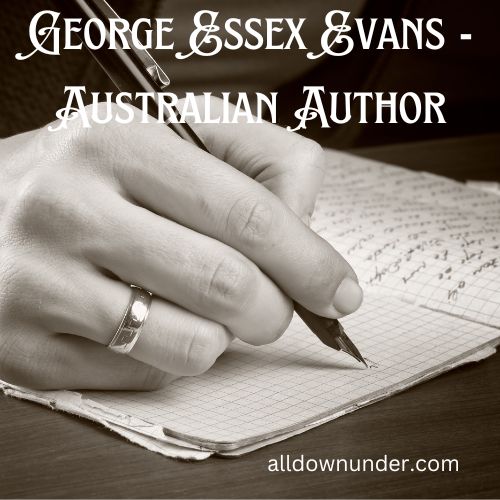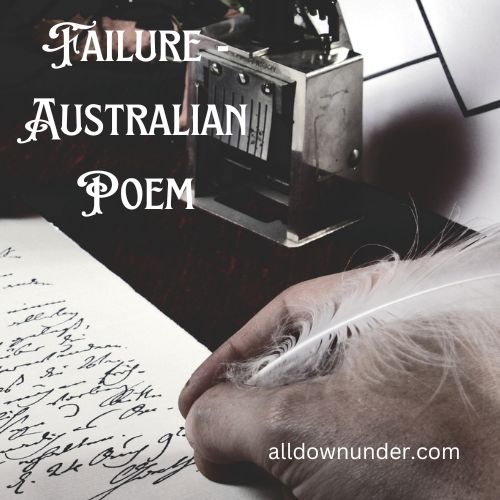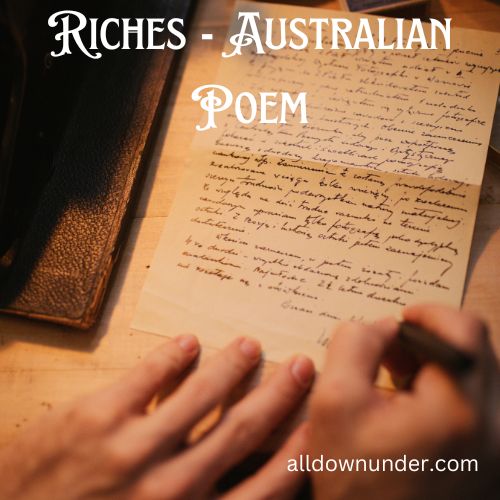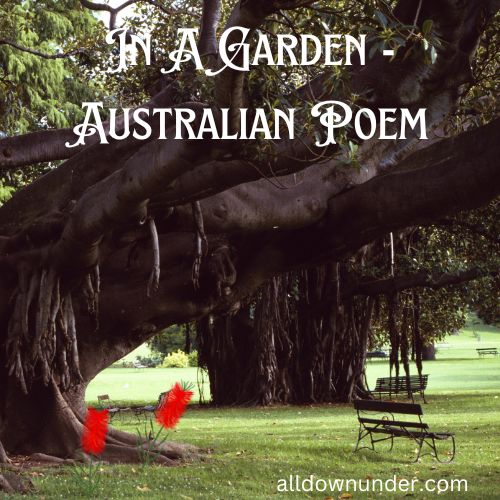George Essex Evans is an Australian Author during the year 1863 – 1909. His life was filled with both struggle and success, yet he found time to write many great works that are still widely read today.
GEORGE ESSEX EVANS has over 200 published poems attributed to his name. His work frequently appeared in Australian newspapers and he wrote in many other literary forms including short stories, essays, various humorous works and a novella.
The Early Years
Evans was born in London on 18 June 1863 of Welsh parents. Evans’s father, John Evans, Q.C., died in 1864 when Evans was only a few months old. John Evans was the Treasurer of the Inner Temple and a member of the House of Commons. He left his
family a fortune of 60 000 pounds, but it did not last very long. Consequently, Evans was raised and educated by his mother Mary Ann (nee Owen). She was an educated woman, fluent in both Latin and Greek.
Deafness
Evans was partly deaf and although he was an excellent athlete, his tutors thought him ‘dull’. Evans suffered from increasing deafness as he grew older, and this may be the reason why he was thought to be a secretive, quiet man. His hearing impediment prevented him going into the armed forces.
Move to Australia
In 1881, when Evans was 17, he emigrated with his the siblings to Queensland, Australia. Travelling first class, the journey around the Cape of Good Hope that lasted sixty-five days. Upon arrival in Queensland, the brothers bought some land in the Darling Downs with the intention of farming. Evans, however, was badly injured in a horse riding accident and was unable to do any physical work. He was able to take part in athletic pursuits, competing in wrestling, running, swimming, and football (in which represented Queensland).
Initially he earned a living by working as a teacher at a private school, but eventually became an Agricultural Editor of The Queenslander. Evans also wrote travel books for the Government Tourist and Intelligence Bureau. He entered the public service in 1888 and eventually became District Registrar of births, deaths and marriages first for Gympie and then later for Toowoomba.
Marriage
On November 6, 1899 George Essex Evans married Blanche Hopkins, the young widow of E. B. Hopkins of Goondiwindi, the daughter of the late Rev. William Eglinton and sister of former Native Police Officer, Second-Class Sub-Inspector Ernest Eglinton. Evans and Blanche had two sons, the younger one, Owen Meylett Eglinton Essex Evans died at five and a half years of Ileo Colitis Acuta (a form of diarrhoea). Evans also had two step daughters: Lorna and Beryl Hopkins. George and Blanche named the home they built “Glenbar”. It was on the eastern slope of the Toowoomba range in Queensland.
Evans, the Man
Evans was described as having a tremendous memory, particularly for poetic verse of which he was able to recite a prodigious amount. Few of his contemporaries were able to match his breadth of knowledge of English, American and Australian poetry. He was said to be a reserved man and at times rather moody and impulsive. However, he was also described as a kind person and loyal friend. He had a strong sense of honour and self respect; traits which made him a model husband and father.
His Works
George Essex Evans’ works were highly regarded during his career and for a time following his death. He was publicly praised by many acknowledged critics and political figures including William Archer, Sir Samuel Griffith, Alfred Deakin and Sir Henry Parkes.
His first volume of poetry, The Repentance of Magdalene Despar, was published in 1891. Between 1892 and 1897 Evans was associated with John Tighe Ryan in the production of the periodical, The Antipodean. In 1898 another collection of poetry, Loraine and Other Verses, was published and in 1901 Evans won a prize of fifty guineas for his “Ode for Commonwealth Day”. Although this ode was praised by the then Prime Minister, Alfred Deakin, it was criticised by his peers as trite.
The Secret Key and Other Verses which included part of the Loraine volume, was published in 1906. He won a reputation in his own state of Queensland as the author of patriotic verse, as in “Cymru”, and his bush ballads, such as “The Women of the West,” were popular.
His work was also noticed by the Queensland State Government and following the success of The Garden of Queensland, Evans was promoted to the Chief Secretary’s department to advertise and sell Queensland at the Franco-British Exhibition in London in May 1908.
Evans also wrote and produced some theatrical works for the Brisbane Theatre including Robinson Crusoe, a pantomime and Musical Whist. During the last two years of his life he wrote prolifically about the resources of his state for the Queensland government.
Evans also founded the Austral Society in Toowoomba in 1903 to promote music, art, literature, science and industry.
Death
George Essex Evans was a great advocate for the construction of a new road northward across the Australia. After falling ill in 1909 he became the first passenger to be transported over it when taken to hospital. The men working on the road were so overcome with sorrow for the poet who had worked hard to bring about the new road that they relieved the ambulance men of their duty.
Evans died at age forty-six from complications arising from gall bladder surgery in 1909. The news of his death was first delivered on the stage of the Austral Hall during the largest Austral Festival celebrations ever held. Evans’s death prompted an emergency meeting of the Austral Association Committee who, knowing that of all the titles Evans held he was most proud of ‘Founder of the Austral Association,’ decided that the festival must continue. A series of emotional tributes to his impact on advancing the cause of Australian Music, Art and Literature followed.
His funeral was held on the 11th of November 1909 at the St. James Church and he was eulogized by Alfred Deakin whom he shared a long correspondence with in Federal Parliament as ‘Australia’s Poet.’
In a speech that was wired to the poet’s widow after his death, Australian Prime Minister Deakin shared his sentiments stating that he was:
“Deeply grieved at sudden and unexpected death of your greatly-gifted husband. Australia will mourn the loss of her national poet whose patriotic songs stirred her people profoundly in the arduous campaign for union.”
Evans works include:
- 1891 The Repentance of Magdalene Despar
- 1898 Loraine and Other Verses
- 1906 The Secret Key and Other Verses



